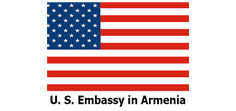Discussions have been ongoing for several days now on the proper qualification of the criminal actions the former defense minister Michael Harutyunyan is accused of within the framework of a criminal case filed over the tragic events on March 1, 2008.
We have had an article published about this topic previously where we explained that the action of subverting the constitutional order described in Article 300.1 was considered a criminal offence in 2008 too.
Former Minister of Justice Davit Harutyunyan, speaking to reporters touched upon the same issue and mentioned that charging Mikael Harutyunyan under Article 300.1 is unconstitutional and referred to Article 72 of the Constitution, which states the following: “No one shall be sentenced for an action or inaction not deemed to be a crime at the time of committal.” He expressed hope that the law-enforcement bodies would take a more serious action, because with such mistakes the law-enforcement officers are devaluing the “very important work” they are doing.
When was the Article 300 edited and why?
In order to clarify this legal debate, we will now address the amendments made to the Criminal Code on March 18, 2009, the results of which the Republican Party now considers anti-constitutional.
As it turns out, the same former Minister of Justice Davit Haroutyunyan was the initiator for editing the article on usurpation of the power and the co-author of the draft law 300.1. Moreover, in 2009 he was the Chairman of the Standing Committee on State and Legal Affairs of the National Assembly.
David Harutyunyan together with MPs Avet Adonts, Artsrunie Aghajanyan and Armen Rustamyan presented the draft law on making amendments to the Criminal Code.
There was a political motivation behind the introduction of the mentioned draft law, because of the infamous criminal case named the “case of 7” [TN: the defendants in the “case of 7” are prominent supporters of former president and opposition leader Levon Ter-Petrossian who were charged for an attempt to seize power and incite riots] initiated in regard to March 1 events and also the 1609 resolution of the Council of Europe. At the time changes were made in the Criminal Code, particularly in the articles on mass disorder, as well as in the article on usurping the state power, since the changes in these article implied that those who were involved in the “case of 7″ could have been sentenced to a mild punishment in the future.
Speeches and questions concerning the subversion of the constitutional order
February 24, 2009: David Harutyunyan, the co-author of the draft amendments to the Criminal Code, presents the draft law at the plenary session of the National Assembly.
“I will begin my speech with the Article 300 of the Criminal Code which is called “Usurping state power”. In my opinion, Article 300 had at least 5 shortcomings. First of all, in the criminal code the article was called “usurping state power”, whereas it includes four different offenses: seizing and keeping the state power, overthrowing the constitutional order and breaking territorial integrity.
… And what was the result? Consequently, the working group’s proposal is the following: first, every offence must be defined separately, for example it should be defined what the seizure of power is, what keeping the power is and, finally what power embezzlement is, since the first two are the essence of the power embezzlement.”
February 25, 2009:
The Deputy Chairman of the Standing Committee on State and Legal Affairs Artyusha Shahbazyan presents the conclusions of the Committee about the mentioned draft law.
“When I said there is a need for more clarification I was referring to Article 300. Even with its current content the article should have never been in the Criminal Code. Let me read an extract from it to explain further, “Usurping state power, i.e. seizure of state power, in violation of the Constitution of the Republic of Armenia…” In other words, it may be assumed that it is possible to change the state power without violating the Constitution, or the power can be seized without violence, whereas it is not clear how it can happen. The same refers to keeping the power and subverting the Constitutional order. It implies that maybe there is another way. As a result, we end up with actions aimed at violating the territorial integrity of the Republic of Armenia. Thus, we can see that different crimes have been just thrown into one melting pot and, therefore, the other offences could just as well affect the person accused of one of these offences.
“I think it is crucial to have these clarifications and dividing the article based on different offenses. “- mentioned Artyusha Shahbazyan in his speech.
Summarizing all the above mentioned, it should be noted that making changes to Article 300 of the RA Criminal Code and adding new Article 300.1 both Davit Haroutyunyan and Artyusha Shahbazyan insisted that there was more than one offense in the article, one of them being the subversion of the Constitutional order, and that there was a need for separating those.
Thus, the subversion of the Constitutional order was an offense in 2008 too, however, the actions aimed at subverting the Constitutional order in 2008 were defined in the Article 300 of the Criminal Code which was titled “Usurping the State Power.”
Tirayr Muradyan

 FACTOMETER
FACTOMETER









